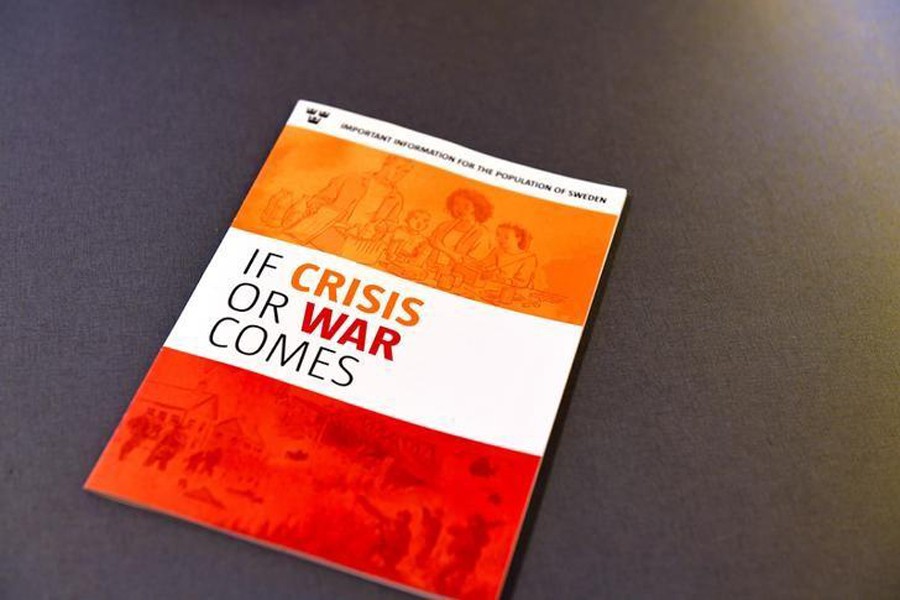
Published :
Updated :

Over the last two weeks, every household in Sweden received a booklet of instructions on how to prepare for war. Issued by the government and including instructions for every Swedish resident to resist an invader by all means necessary, it was a dramatic sign of just how quickly the recently unthinkable has become something Europe’s Nordic governments in particular feel they must address.
“For many years, the preparations made in Sweden for the threat of war and war have been very limited,” says the Swedish brochure. “However, as the world around us has changed, the Government has decided to strengthen Sweden’s total defense… The level of preparedness for peacetime emergencies is an important basis of our resilience in the event of war.”
For most of the continent, Russian President Vladimir Putin’s annexation of Crimea and war in Ukraine four years ago was seen as a wake-up call, but not a potentially existential threat. Countries like Germany, Britain and France have reconsidered their defense postures, often also lightly increasing military spending. By and large, however, even within their security establishments, few see a genuine imminent risk of overwhelming Russian conventional military attack on their homelands. Moscow’s military might be at its most active since the Cold War, but its tanks and troops remain a comfortingly long way away.
That clearly isn’t the case in the Nordics, much closer geographically to Russia. Norway has appointed a senior special forces officer to lead its Home Guard, a territorial defense force separate from the mainstream military and specifically intended to fight any invader. Finland has reorganised its military, forming its troops into larger companies to allow them to better handle the large number of casualties expected in any attack. Both countries have long had conscription for able-bodied young men – and now theoretically neutral Sweden is also reintroducing National Service for both men and women.
It’s a dramatic change from only a handful of years ago, when Nordic militaries were much more focused on humanitarian and counterterrorism interventions overseas, including UN peacekeeping.
Neither Norway, Sweden nor Finland could hold a Russian invasion at the border. To varying degrees, their strategy presumably would be to cede much of the country to invaders – then fight back with hit and run attacks, and gradually bleed them to death.
It is not that any of those countries think war is truly imminent – although one of Norway’s most popular recent TV shows, Occupied, revolves around a Russian invasion, a clear sign of how perceived risks have changed. Rather than launching an overwhelming military strike, most European security analysts expect Moscow to continue its current more asymmetric tactics, supporting extremist political parties, conducting periodic cyber attacks and other forms of disruption.
For NATO, a much greater focus is on defending the Baltic states of Estonia, Latvia and Lithuania, once part of the Soviet Union and seen as much more likely targets of Russian aggression, not least because of their geographic proximity and significant Russian-speaking populations. German, Canadian and British-led battle groups are now based in those countries, joined this month by a hefty US and wider European military presence as part of major military exercises.
The Nordic states, too, hope they would not be facing any assault alone. Norway is a long-standing member of NATO, and while Sweden and Finland are not they are now discussing membership and have dramatically increased military and other ties to the alliance. All three nations are also members of the Joint Expeditionary Force, a UK-led group of Nordic, Baltic and northern European nations that could operate militarily separate to the NATO alliance, reports Reuters.


 For all latest news, follow The Financial Express Google News channel.
For all latest news, follow The Financial Express Google News channel.